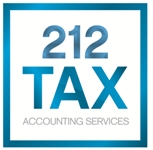After getting married last year, Mariam Majid knew she needed help filling her taxes. Marriage can mean a big change in filing status, and while she felt comfortable filing before, she new was hesitant to move forward without expertise. Additionally, her new husband was navigating a complicated immigration process which can make filing taxes correctly incredibly important. Mariam consulted Anil about her unique tax situation to make sure she did everything the right way the first time around.
A lot of people struggle to decide whether they need professional help filing their own taxes. If you feel you are in a unique or complicated tax situation, it is worth consulting a professional tax advisor to at least give you your full range of options. Here are some facts to consider when deciding if you should hire a tax professional.
How much time do you have?
In 2012, the IRS estimated people need to spend at least 16 hours to tax planning and completion for the average 1040 form. For many, this time commitment alone is too daunting to fit into a daily schedule. If you plan to itemize deductions or file multiple forms, this time estimate increases substantially. Time really is money, so you will need to decide for yourself if how much you value your time.
Do you have a complex tax situation?
While most single filers who only receive a W2 through their workplace and have limited investments, filing can be a straightforward process to do on your own. In the case of marriage, dependents, itemized deductions, or self-employment, tax filing can become exponentially more complicated.
In the case of Mariam, her new filing status caused her to lose her confidence in filing on her own. While there are many tax softwares available now that allow you to customize your filing situation, these can get confusing quickly. Because she knew filing properly was essential to her husband’s immigration situation, she knew it was best for her to consult a professional.
How confident do you feel filing your own taxes?
Finally, and most importantly, you need to decide just how confident you feel filing your own taxes. By signing on the dotted line at the bottom of your tax return, you are claiming your responsibility for your own information. If there is a problem in your documents, the IRS will come directly to you with questions.
Having a tax advisor can create a buffer between you and the IRS. You can direct any IRS questions to your tax preparer who can handle these things on your behalf in the case of a problem. Ultimately, you will need to recognize your own confidence level when it comes to filing taxes so you can do what is best for you.
When in doubt, speak with a tax expert. A professional can help you assess your particular situation and can even help you remedy any existing tax issues.


